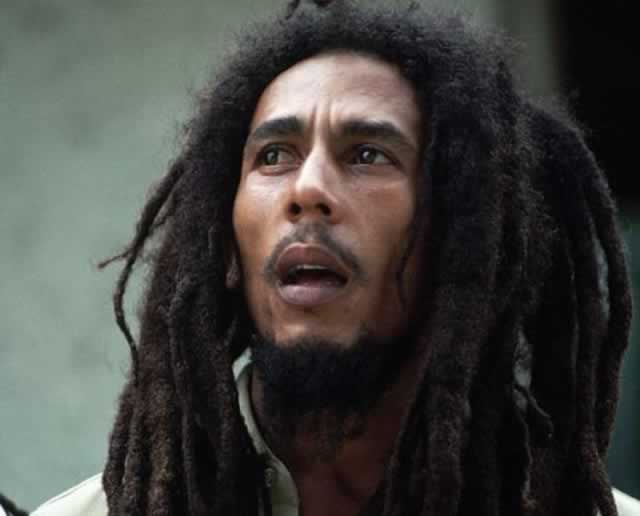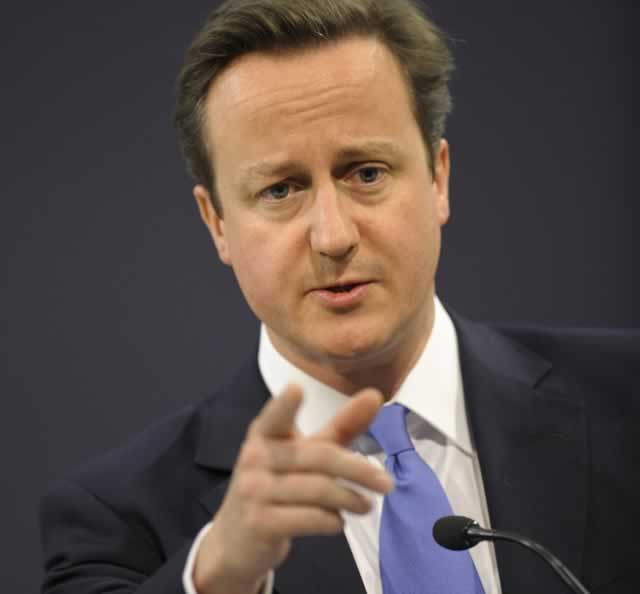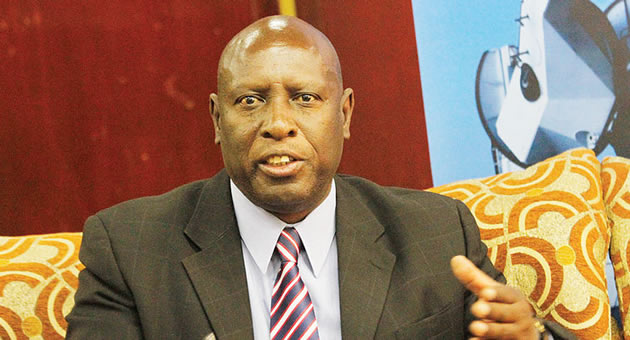Zim to Jamaica: UK’s hypocrisy exposed

The Arena Hildegarde
“All the crimes of slavery were being committed in the name of the Crown. The Queen is the head of state of the UK Government. The Government was complicit in all the crimes that took place.”
Every geo-political issue presents perfect opportunities for case analysis. It also answers the five questions that are pillars of journalism: what, why, where, when and how.
Take the official visit to Jamaica by British Prime Minister David Cameron during the just-ended 70th session of the United Nations General Assembly.
Unlike most colonies, the Queen is still head of State of both Jamaica and Britain. In essence, Cameron was just going home away from home.
This visit reminded the writer about a lot of other issues between Empire and former colonies. Thus we are more else continuing the thread from last week when we interrogated whether it was still relevant to write back to Empire.
I recall the visit to Johannesburg for an international summit by former premier Tony Blair in 2012, who like George W Bush, Obama and all of them has blood on his hands: the blood of the people of the Middle East, North Africa and Afghanistan.
The hyped “arrest Tony Blair” for crimes against humanity and send him to the International Criminal Court by the Society for the Protection of our Constitution yielded nothing despite the fact that the complaint was lodged with the National Prosecuting Authority.
When you contrast that with the hue and cry made following a similar call to arrest Sudanese President Omar al Bashir while he was attending an African Union Summit this year, you then realise that it is foolhardy to think that we are done writing back to Empire.
Back to Cameron’s historic visit to Jamaica, that Caribbean island that produced the indomitable reggae legend Bob Marley, who not only made the newly independent Zimbabwe proud by penning a song about its people and struggles, but was actually one of the highlights during the handover of power on April 18 1980:
Every man gotta right to decide his own destiny,
And in this judgment there is no partiality.
So arm in arms, with arms, we’ll fight this little struggle,
‘Cause that’s the only way we can overcome our little trouble.
Brother, you’re right, you’re right,
You’re right, you’re right, you’re so right!
We gon’ fight (we gon’ fight), we’ll have to fight (we gon’ fight),
We gonna fight (we gon’ fight), fight for our rights!
Natty Dread it in-a (Zimbabwe);
Set it up in (Zimbabwe);
Mash it up-a in-a Zimbabwe (Zimbabwe);
Africans a-liberate (Zimbabwe), yeah.
And, brother, you’re right, you’re right,
You’re right, you’re right, you’re so right!
We’ll ‘ave to fight (we gon’ fight), we gonna fight (we gon’ fight)
We’ll ‘ave to fight (we gon’ fight), fighting for our rights!
Mash it up in-a (Zimbabwe);
Natty trash it in-a (Zimbabwe);
Africans a-liberate Zimbabwe (Zimbabwe);
I’n’I a-liberate Zimbabwe.
With that, a reggae culture was born and dreadlocked hair has become the socio-cultural, political and economic symbol, not only for Zimbabwean men and women, but for black people globally.
Cameron’s Jamaican visit might have been just another bilateral visit until the issue of slavery reparations took centre stage.
Agenda setters were at it again, and their Western media wasted no time in ensuring that reparations seem like a do or die issue. In this ICT age, social media came in handy to circulate one of the petitions, which according to a Jamaica Observer source said: “All the crimes of slavery were being committed in the name of the Crown. The Queen is the head of state of the UK Government. The Government was complicit in all the crimes that took place.”
But it was Sir Hilary Beckles’ letter to Cameron that made it look like the Caribbean island had arrived. Not only is he the vice chancellor of the University of the West Indies, he is also the chairman of Caricom’s Reparations Commission. Below are highlights of Sir Hilary’s letter and the direct echoes to Cameron personally:
“We recognise you, Prime Minister, given your family’s long and significant relationship to our country, as an internal stakeholder with historically assigned credentials. To us, therefore, you are more than a prime minister. You are a grandson of the Jamaican soil who has been privileged and enriched by your forebears’ sins of the enslavement of our ancestors.
“You are, Sir, a prized product of this land and the bonanza benefits reaped by your family and inherited by you continue to bind us together like birds of a feather.
“Be assured, Prime Minister, that you will find no more generous people on our planet Earth than those who will greet you with golden hearts and civilised consciousness. I urge that you embrace the sincerity of our salutations. It is born and bred in the cauldron of our enslavement by your family and society.
“It is furthermore, an overture to an expectation of a dialogue of reparatory justice that can redefine for us a new intimacy for this long 21st century on which we are embarked.
“I speak of outstanding and unresolved matters that are relevant to our sense of mutual respect as equal nations dedicated to the cause of furthering humanity’s finest imagined destiny.
“It is not an issue that can be further ignored, remain under the rug, or placed on back burners, as your minister who recently visited us so aptly described your agenda for Jamaica and the Caribbean.”
For all those efforts, Cameron responded, while addressing a joint sitting of the Jamaican parliament: “Slavery was and is abhorrent in all its forms. It has no place whatsoever in any civilised society, and Britain is proud to have eventually led the way in its abolition.”
“I acknowledge that these wounds run very deep, indeed. But, I do hope that, as friends who have gone through so much together since those darkest of times, we can move on from this painful legacy and continue to build for the future,” he said.
To add insult to injury, Cameron gave the Jamaicans an unforgettable present apart from the paltry “aid” that always makes them look like they are the “lords of poverty”.
Britain will build a £25 million prison facility to settle British-born Jamaican inmates currently held in UK correctional facilities. Case closed as people are hoodwinked into believing that they should be forever beggars of the wealth their ancestors helped create.
Kenya gives us another interesting case to learn from. The Mau Mau torture victims won a landmark case in a British court in 2013, but what have they and their families received so far, apart from the court ruling and one editorial after another? It is so easy to silence people with words, and buy their souls with gifts.
Letters give away the British system. Zimbabwe was made to eat humble pie by Blair’s government when in November 1997, Clare Short, Secretary of State for International Development wrote to national hero, who was then Minister of Agriculture and Lands Cde Kumbirai Kangai, a letter that torched a political storm.
The arrogance saw Zimbabwe adopting a policy stating that the land reform programme was irreversible. Short said in part: “I should make it clear that we do not accept that Britain has a special responsibility to meet the costs of land purchase in Zimbabwe. We are a new government from diverse backgrounds without links to former colonial interests. My own origins are Irish and as you know we were colonised not colonisers.
“We do, however, recognise the very real issues you face over land reform. We believe that land reform could be an important component of a Zimbabwean programme designed to eliminate poverty.
“We would be prepared to support a programme of land reform that was part of a poverty eradication strategy, but not on any other basis.
“I am told, Britain provided a package of assistance for resettlement in the period immediately following Independence. This was I gather carefully planned and implemented and met most of its targets . . . blah blah blah!” When you read between the lines, from Jamaica to Zimbabwe it is as if you are reading a lullaby.
Cry babies can take solace in Bob Marley’s “Redemption Song”:
Old pirates, yes, they rob I;
Sold I to the merchant ships,
Minutes after they took I
From the bottomless pit.
But my hand was made strong
By the ‘and of the Almighty.
We forward in this generation
Triumphantly!
Won’t you help to sing
These songs of freedom?
‘Cause all I ever have:
Redemption songs;
Redemption songs.
Emancipate yourselves from mental slavery;
None but ourselves can free our minds.
Have no fear for atomic energy,
‘Cause none of them can stop the time.
How long shall they kill our prophets,
While we stand aside and look? Ooh!
Some say it’s just a part of it:
We’ve got to fulfil the book.










Comments